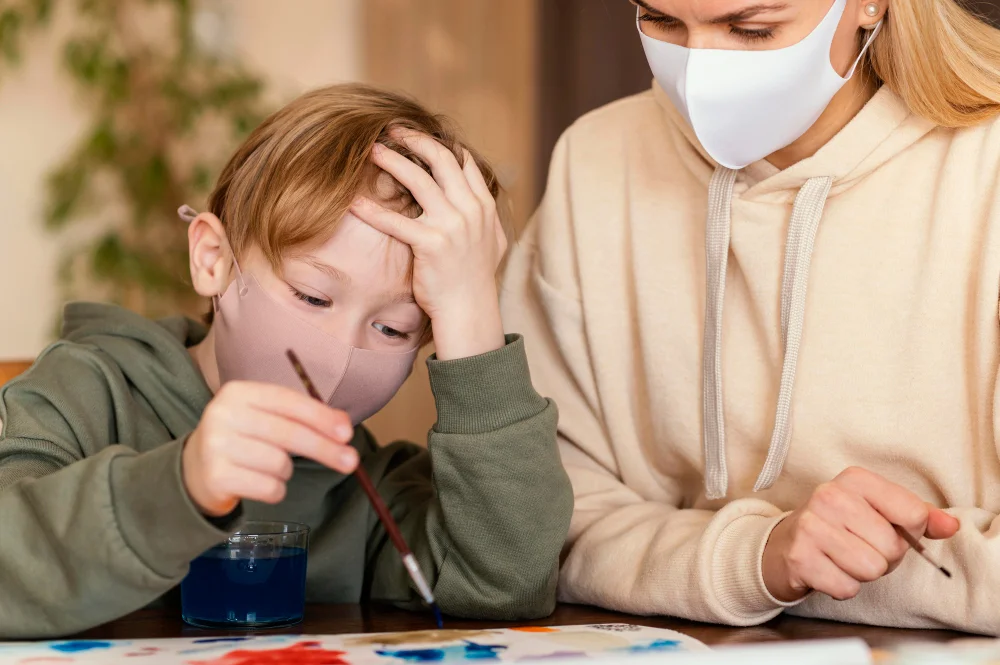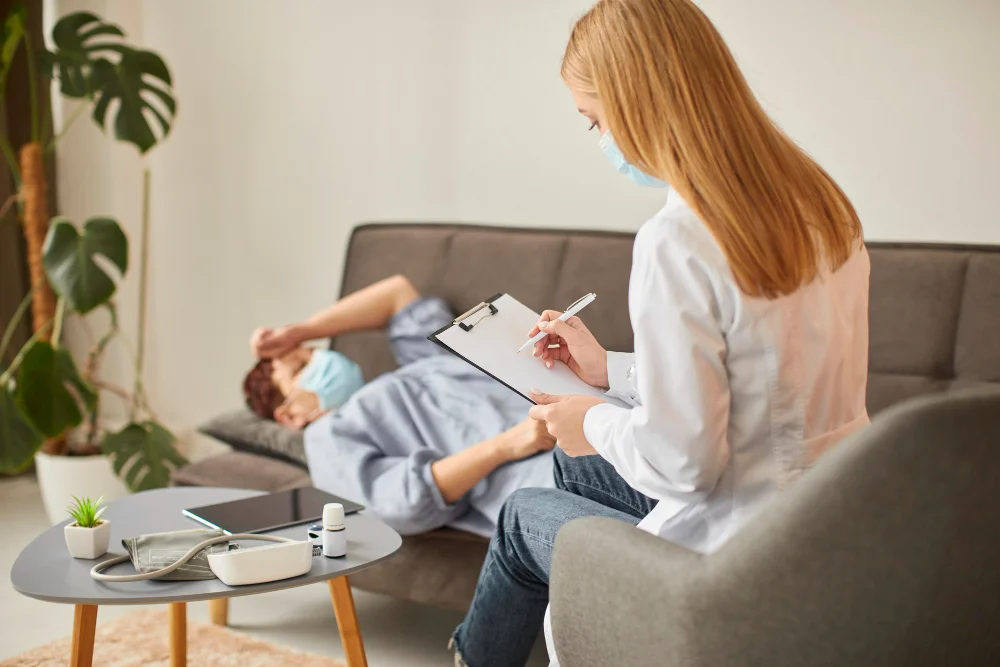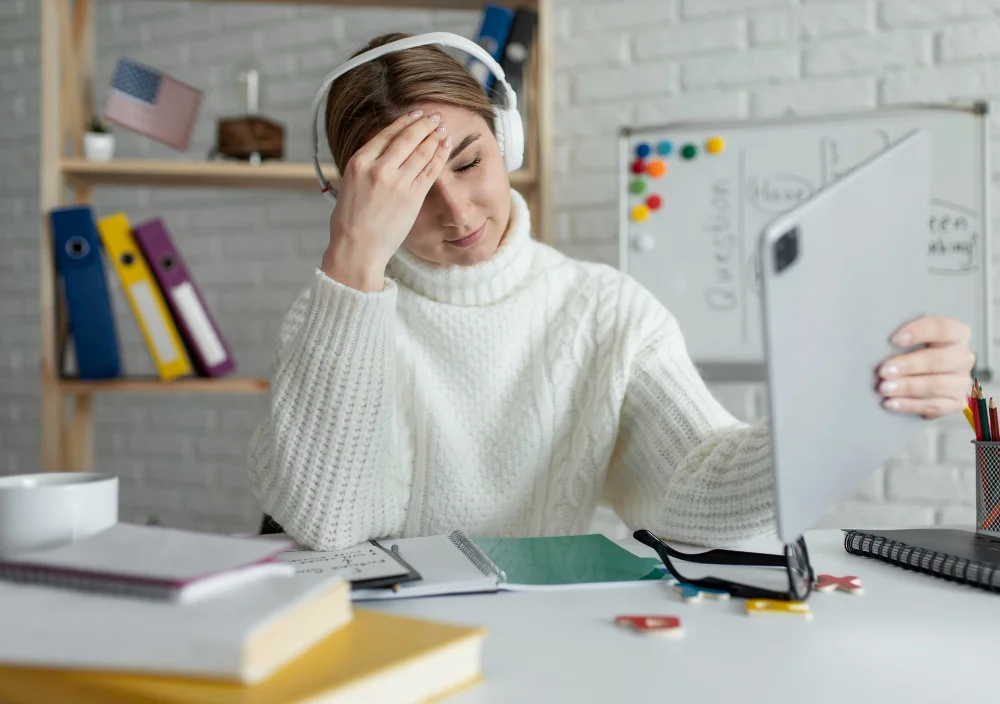Many individuals with ADHD seek alternatives to traditional pharmaceutical interventions, looking for effective ways to manage their symptoms naturally. This comprehensive guide explores ADHD treatment without medication, highlighting proven strategies such as cognitive behavioral therapy, lifestyle adjustments, and innovative treatments like TMS therapy that can significantly improve daily functioning and quality of life.
Attention Deficit Hyperactivity Disorder affects millions of people worldwide, presenting challenges in focus, impulse control, and hyperactivity that can impact every aspect of daily life. While medication remains a standard treatment approach, many individuals prefer exploring non-pharmaceutical options due to concerns about side effects, personal preferences, or the desire for more holistic treatment approaches.
What is ADHD and How Does It Affect the Brain?
ADHD is a neurodevelopmental condition that affects brain structure and function, particularly in areas responsible for executive functioning, attention regulation, and impulse control. Brain imaging studies reveal differences in the prefrontal cortex, basal ganglia, and other regions that play crucial roles in focus and behavioral control.
These neurological differences explain why individuals with ADHD struggle with tasks requiring sustained attention, working memory, and emotional regulation. The brain’s reward system also functions differently, making it challenging to maintain motivation for tasks that don’t provide immediate gratification.
ADHD Treatment Without Medication: Overview of Non-Pharmaceutical Options
Behavioral Therapy for ADHD
Cognitive Behavioral Therapy (CBT) represents one of the most effective forms of adhd treatment without medications. CBT helps individuals identify negative thought patterns and develop practical strategies for managing ADHD symptoms in daily life.
Through CBT, people learn to recognize when their attention is wandering and develop techniques to refocus on essential tasks. The therapy also addresses common ADHD-related issues such as procrastination, time management difficulties, and emotional regulation challenges.
Behavioral therapy teaches specific skills, including organization strategies, problem-solving techniques, and stress management approaches. These skills become valuable tools that individuals can use throughout their lives to better manage their symptoms.
Coaching and Organization Support
ADHD coaching provides practical support for developing organizational systems and accountability structures. Unlike traditional therapy, coaching focuses specifically on skill-building and practical problem-solving for ADHD-related challenges.
Professional ADHD coaches help clients develop personalized systems for managing time, organizing spaces, and maintaining consistent routines. They provide ongoing support and accountability, assisting individuals to stay on track with their goals and commitments.
Coaching sessions often focus on creating effective calendaring systems, developing productive work habits, and establishing routines that support better focus and productivity.

Effective Strategies for Managing ADHD Without Medication
Mindfulness and Meditation
Mindfulness practices have shown significant promise as part of how to treat adhd without medication. Regular meditation helps strengthen attention regulation and reduces the mental restlessness common in ADHD.
Research demonstrates that mindfulness training can improve attention span, reduce impulsivity, and enhance emotional regulation in individuals with ADHD. These practices help develop the ability to notice when attention has wandered and gently redirect focus back to the present task.
Simple meditation techniques such as focused breathing, body scans, and mindful walking can be particularly beneficial for people with ADHD who struggle with traditional sitting meditation.
Diet and Nutrition for ADHD
Nutritional approaches play a significant role in managing adhd without medication. Certain dietary modifications can help stabilize mood, improve focus, and reduce hyperactivity symptoms.
Key nutritional strategies include:
- Maintaining stable blood sugar levels through regular, balanced meals
- Increasing omega-3 fatty acids through fish, nuts, and supplements
- Reducing processed foods, artificial colors, and excessive sugar
- Ensuring adequate protein intake to support neurotransmitter production
- Considering elimination diets to identify potential food sensitivities
Some individuals find that specific dietary changes significantly impact their ADHD symptoms, though responses vary considerably between people.
Exercise and Physical Activity
Regular physical activity serves as a powerful tool for adhd treatment without medication. Exercise increases dopamine, norepinephrine, and serotonin levels in the brain, which can improve attention and mood while reducing hyperactivity.
Aerobic activities such as running, swimming, and cycling are particularly beneficial for ADHD symptom management. These activities help burn excess energy while improving executive function and attention regulation.
Structured sports and martial arts can be beneficial as they combine physical activity with skill development, discipline, and social interaction.
Sleep Hygiene
Quality sleep plays a crucial role in managing ADHD symptoms naturally. Poor sleep can worsen attention difficulties, increase impulsivity, and make emotional regulation more challenging.
Effective sleep strategies include establishing consistent bedtime routines, creating sleep-conducive environments, limiting screen time before bed, and addressing any underlying sleep disorders that may be present.
Many individuals with ADHD struggle with sleep difficulties, making sleep hygiene interventions particularly important for overall symptom management.
TMS Therapy for ADHD: A Non-Invasive Treatment Option
Introduction to TMS for ADHD
Transcranial Magnetic Stimulation (TMS) represents an innovative approach to adhd treatment without medications. This non-invasive procedure uses magnetic fields to stimulate specific brain regions involved in attention and executive functioning.
TMS therapy targets the prefrontal cortex and other brain areas that show differences in individuals with ADHD. The magnetic stimulation helps normalize neural activity patterns and strengthen connections between brain regions responsible for attention regulation.
Benefits of TMS for ADHD
Clinical studies suggest that TMS therapy can improve attention span, reduce impulsivity, and enhance overall executive functioning in individuals with ADHD. The treatment is well-tolerated and does not produce the side effects associated with ADHD medications.
TMS therapy sessions typically last 20-40 minutes and are conducted on an outpatient basis. Most treatment protocols involve multiple sessions over several weeks to achieve optimal results.
The non-invasive nature of TMS makes it an attractive option for individuals seeking alternatives to traditional medication approaches.
Combining Non-Medication Strategies for Optimal Results
A Holistic Approach to ADHD
The most effective approach to managing adhd without medication often involves combining multiple strategies tailored to individual needs and preferences. No single intervention works equally well for everyone, making personalized treatment plans necessary.
Successful non-medication treatment typically addresses multiple aspects of ADHD, including behavioral patterns, lifestyle factors, environmental modifications, and skill development. This comprehensive approach acknowledges that ADHD affects many areas of life and requires multifaceted solutions.
Creating a Comprehensive ADHD Treatment Plan
Developing an effective treatment plan requires careful assessment of individual symptoms, strengths, challenges, and goals. The plan should include specific strategies for managing attention difficulties, reducing impulsivity, and improving organizational skills.
Regular monitoring and adjustment of the treatment plan ensures that strategies remain practical and relevant as circumstances change. What works during one phase of life may need modification as demands and environments shift.
How to Get Started with ADHD Treatment Without Medication
Finding the Right Professional Support
Getting started with adhd treatment without medication often benefits from professional guidance. Mental health professionals with ADHD expertise can help develop personalized treatment plans and provide ongoing support.
Different types of professionals offer various services, including psychologists for CBT, ADHD coaches for practical skill development, and medical professionals for comprehensive treatment planning. Finding the right match depends on individual needs and treatment goals.
Getting Evaluated for ADHD
Proper ADHD evaluation provides the foundation for effective treatment planning. Comprehensive assessments examine symptoms, functioning levels, and potential co-occurring conditions that might influence treatment approaches.
The evaluation process helps identify specific ADHD symptom patterns and determines which non-medication interventions are most likely to be beneficial for each individual.
Setting Realistic Expectations
Success with how to treat adhd without medication requires patience and persistence. Unlike medication, which can provide relatively quick symptom relief, non-medication approaches typically require more time to show significant benefits.
Setting realistic expectations helps maintain motivation during the initial phases of treatment when changes may be gradual. Most individuals begin noticing improvements within several weeks to months of consistent implementation of their treatment strategies.
Progress monitoring helps track improvements and identify which strategies are most effective for specific symptoms and situations.

Building a Sustainable Approach to ADHD Management
ADHD treatment without medication offers numerous effective strategies for managing symptoms and improving quality of life. The key approaches include cognitive behavioral therapy for developing practical skills, lifestyle modifications such as improved nutrition and exercise, mindfulness practices for attention regulation, and innovative treatments like TMS therapy.
Success with non-medication approaches requires commitment to implementing multiple strategies consistently over time. While the process may take longer than medication-based treatments, many individuals find that the skills and habits developed through these approaches provide lasting benefits and a greater sense of personal control over their symptoms.
